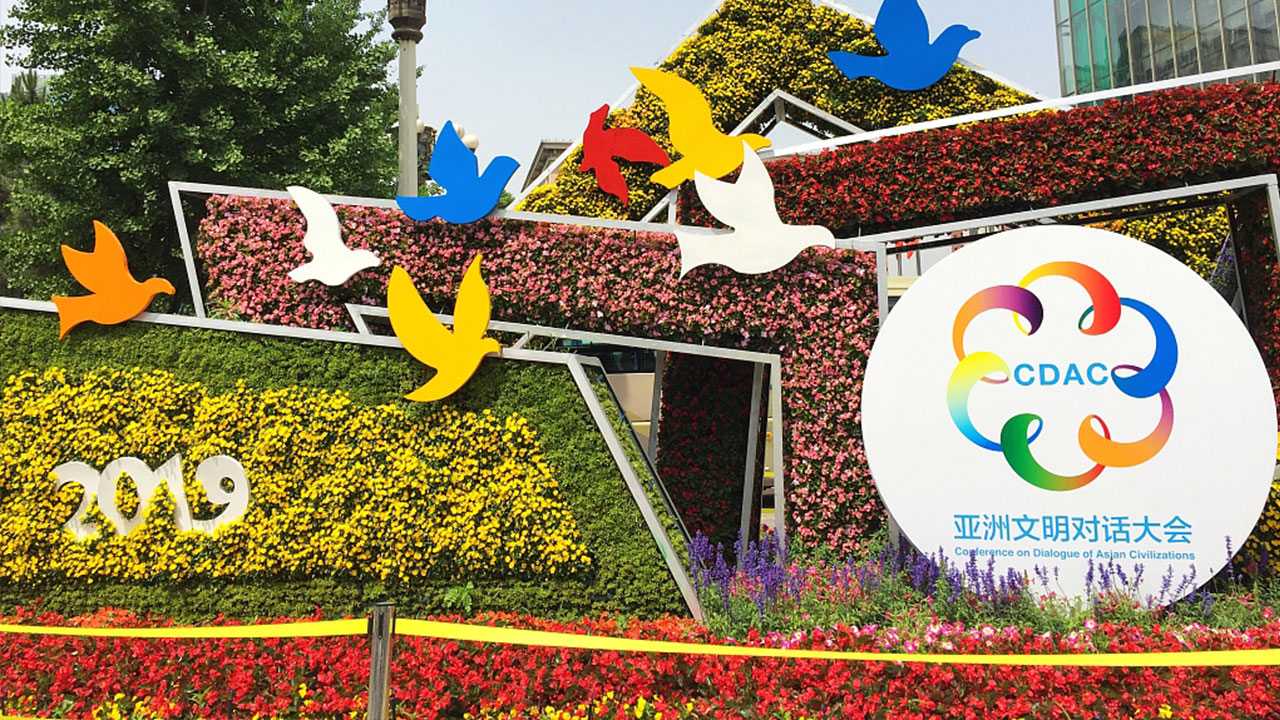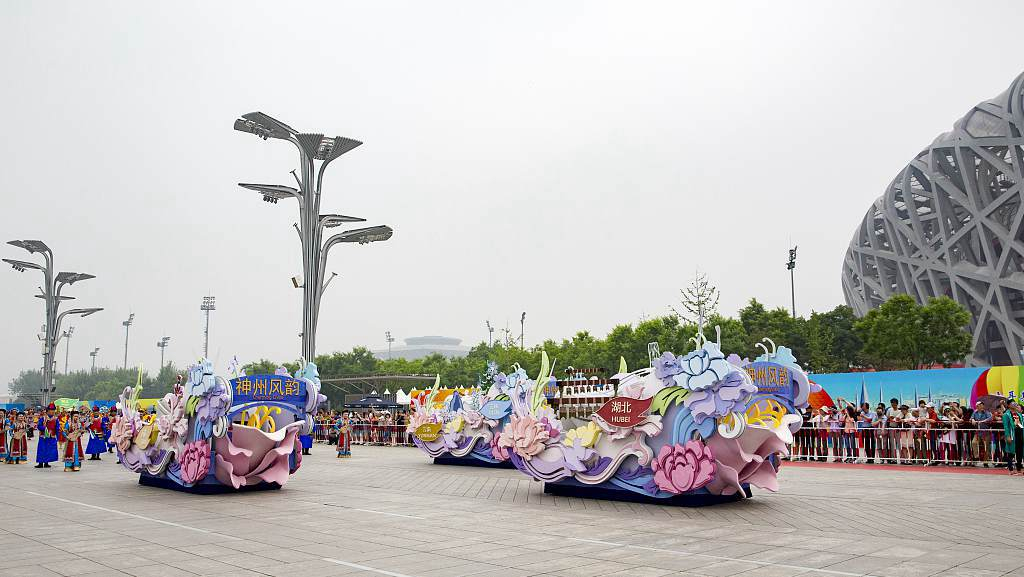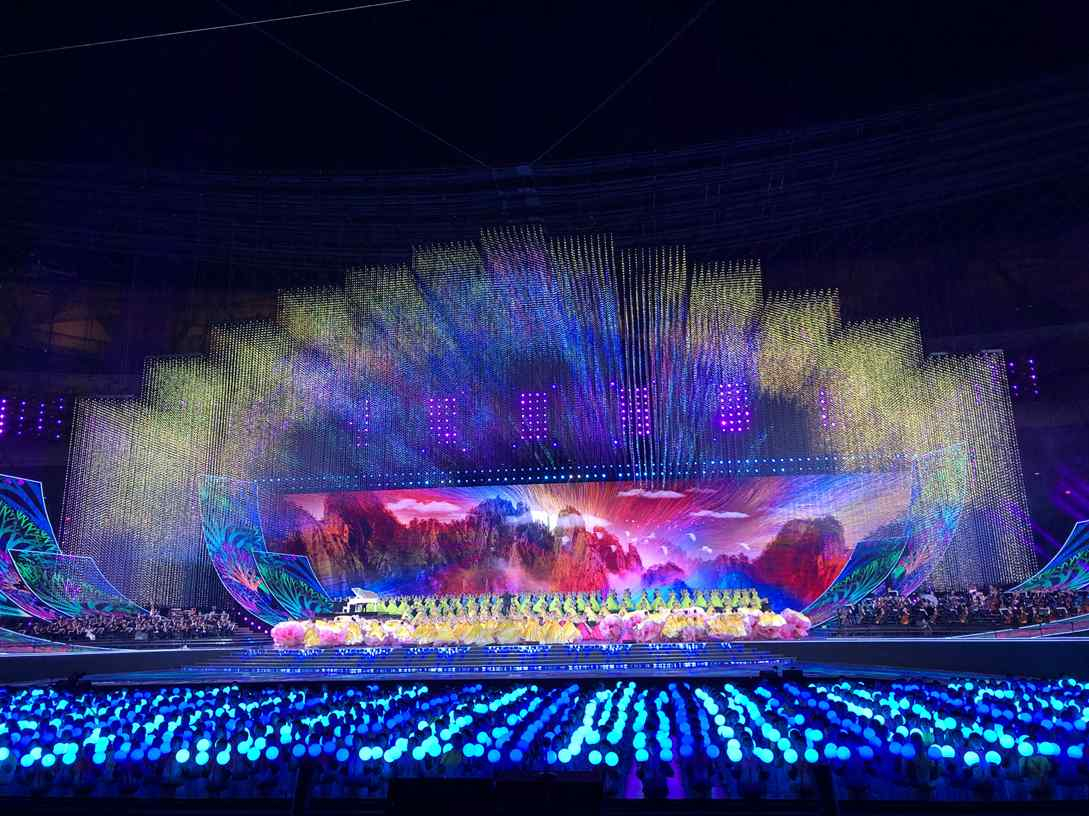
Opinion
16:02, 20-May-2019
CDAC – Ancient wisdom projected into a shared technology future
Laurence Brahm

Editor's Note: Laurence Brahm is a senior international research fellow at Center for China and Globalization. The article reflects the author's opinion and not necessarily the views of CGTN.
The Conference for Dialogue of Asian Civilizations (CDAC) was convened in Beijing on May 15, just a month after the Second Belt and Road Forum for International Cooperation.
While the Belt and Road Initiative (BRI) presents an integrated infrastructure for transport and telecommunications that will offer a new driver for economic growth in many developing nations across South, Central, Southeast Asia as well as the Middle East, Africa, Russia and parts of Europe, the CDAC will provide the software for this hardware in the form of applied universal values based on the ancient wisdom of Asia.
In fact, it is this Asia approach of an economic middle way that was the driver of growth in this region for the past four decades. The non-ideological approach of Asia is seen not only in the economics and development policies, but now increasingly in the politics and foreign relations of Asian nations.
There is a sense of coexistence that is core to Asian cultures. There is no judgment of right or wrong but rather acceptance of what it is.
That is because Western culture is based on duality – right versus wrong, white versus black, good versus bad, winners versus losers. It is entirely a zero-sum game mentality.

A cultural display taking place the Conference on Dialogue of Asian Civilizations, Beijing, May 17, 2019. /VCG Photo
A cultural display taking place the Conference on Dialogue of Asian Civilizations, Beijing, May 17, 2019. /VCG Photo
The values of Asia are based on prior unity rather than duality. The values of Asia are a unity that evolves into derivatives of multiplicity that are interconnected, multidimensional, interactive and synergistic.
Chinese President Xi Jinping in his opening speech at CDAC called for a world of diversified, harmonious and inclusive civilizations working together toward principles of sustainable development.
Moreover, Asian nations, due to their own heritage, history and culture, have their own means of resolving differences through consensus rather than conflict.
President Xi's speech reflects the need for a sustainable peace, which cannot be achieved from intrusive regime change or invasion of states. Rather, sustainable peace can be achieved through economic empowerment and identity recognition.
From the work of the Himalayan Consensus Institute and the Silk and Spice Road Dialogues, conflict, war and terror are not caused by clashes of civilizations. The organizations observe that such conflict arises when people are economically disempowered and their identity marginalized.
To end conflict, people need their own sustainable economic platform together with respect and protection of their heritage and culture.
Earlier articulations such as the Himalayan Consensus and African Consensus came together in a call for a greater Silk Road Consensus, reflecting the cultural aspirations of nations linked through infrastructure and telecommunications on the new "Cyber Silk Road" or the BRI as it has become known.

The Asian Culture Carnival was launched at the National Stadium in Beijing, May 15, 2019. /CGTN Photo
The Asian Culture Carnival was launched at the National Stadium in Beijing, May 15, 2019. /CGTN Photo
A core theme of the CDAC was the importance of looking to traditional Asian values as a paradigm for future universal values.
This comes at a time when Western values are increasingly being questioned by many who see them derailing against the rise of right-wing governments who are rolling back globalization through protectionism and sanctions, insisting on confrontation as a zero-sum solution for global challenges, while refusing to address the climate crisis out of ideological reasons.
Traditional Asian values of harmony, respect of others, respect of nature and the necessity of seeking commonalities over conflict suddenly seem to be offering a refreshing path forward in a world of increased volatility and uncertainty.
Likewise, Asian approaches to governance seek to build consensus rather than conflict as a more sustainable means of achieving long-term collective goals, rather than reacting to the short-term vicissitudes of political bickering.
The CDAC sought to offer this fresh paradigm of universal values built on ancient wisdom, rather than seeking to emulate Western cookie cutter models being uniformly applied to others regardless of their heritage, culture or history.
On the evening of May 15, the delegates attended a spectacular pageant and kaleidoscope performance at the Bird's Nest stadium. It presented the depth of Asian collective civilization through music, dance, performances enhanced with high technology effects to underscore the unbroken heritage of Asia.
It is also extending this culture beyond its many millennia of evolution and development, projecting it into a future of quantum communication, bringing the people of Asia closer through a shared fresh paradigm of universal values built on traditions of ancient wisdom.
(If you want to contribute and have specific expertise, please contact us at opinions@cgtn.com.)

SITEMAP
Copyright © 2018 CGTN. Beijing ICP prepared NO.16065310-3
Copyright © 2018 CGTN. Beijing ICP prepared NO.16065310-3